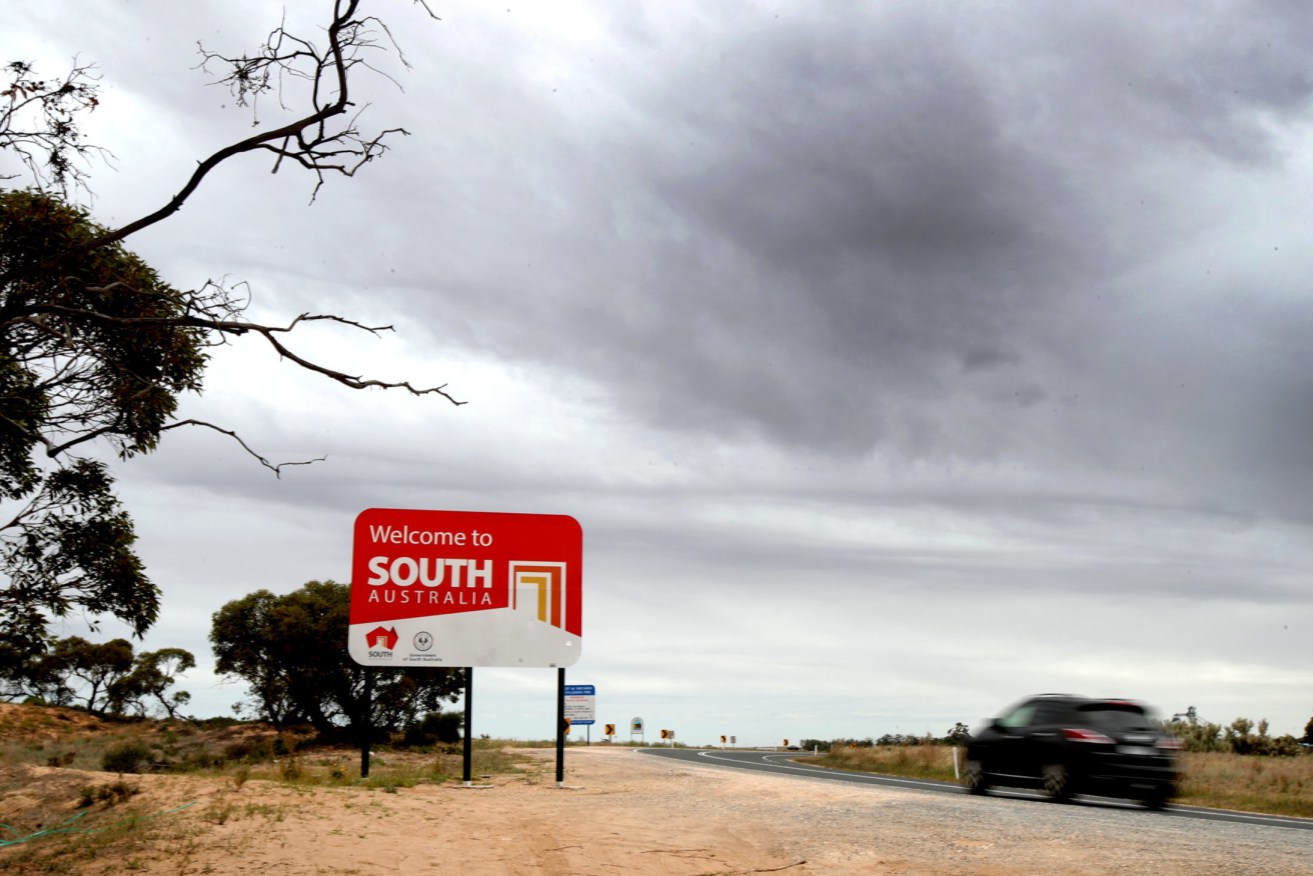Hard border shutdown a strange new world for towns and police
Most weeks, cancer patients in Renmark can drive the hour and a half across the Victorian border to Mildura’s local hospital for lifesaving treatment.


Photo: AAP/Kelly Barnes
But laws to combat the pandemic have changed everything, with extra officers arriving in the Riverland town to police an unprecedented “hard” shutdown of the border.
“(Patients) could go over the border and back in a day, but now they’ll have to drive the three hours to Adelaide where they may have to stay overnight.” Renmark Paringa Mayor Neil Martinson told InDaily.
“Many are old and frail and even a young person, it tires them out.”
It was this dilemma that led to Martinson voicing out loud a suggestion a few weeks ago to consider a COVID-19 bubble with Mildura and it was one that quickly led to a deluge of phone calls – both for and against – from locals.
“Talk of a potential bubble, that was last week, obviously things have changed dramatically in Victoria since then,” he said.
Martinson’s experience is one being played out right across the state’s towns and cities as South Australians debate the merits of a hard border closure designed to stop escalating virus cases in Victoria from spreading.
Martinson is wholeheartedly supportive of following the rules saying it has so far kept South Australians safe from the virus, but he is also acknowledging community leaders are grappling with how to best look after their citizens.
“We’ve never experienced anything like this at all,” he said.
The decision to implement a tougher border closure to Victoria and step up the number of police at checkpoints came as Melbourne re-entered lockdown for six weeks following record coronavirus cases, most from community transmission.
South Australian police commissioner Grant Stevens committed more than 400 police officers to policing the border, their numbers bolstered with Defence Force personnel.
Extra police officers are being sent to the Riverland and South-East, with essential travellers expected to now wear protective equipment and keep records of their movements if they enter the state.
As of midnight Wednesday, only residents returning to South Australia or those granted a special exemption are allowed to pass through checkpoints.
There are few signs of the extra police in Renmark.
Martinson said most are based further outside of town, at an extra checkpoint at the Renmark to Wentworth Road for the past two weeks along with maintaining a strong presence at the main border crossing at Yamba.
“Whole new ball game” for police
A police spokesman said more than 70 officers are patrolling the borders in strategic checking sites and random mobile patrolling of back roads and tracks leading into the state.
All travellers must explain why they are in SA, each is then processed electronically, with police accessing their online Cross Border Travel application and depending on their entry reason, travellers are either granted Essential Traveller status or directed to self-quarantine for 14 days.
It is an entirely new world for police officers as they take their places at the state’s borders, along with undertaking hundreds of compliance checks at homes and hotels where people are in quarantine.
And it is one demanding unprecedented commitment. On March 27 this year, the state’s police commissioner cancelled leave for all 4,700 police officers in the state, the move rescinded on June 19.
Now officers are being asked to volunteer to switch from their usual roles to police checkpoints and roads for seven-day stints on rotation.
“This is a whole new ball game in policing activity, there are new challenges we’ve never had to face,” Police Association of South Australia president Mark Carroll said.
The association has been working with officers, the commissioner and government to keep frontline workers safe, Carroll saying they face an increased risk of infection and often don’t have the opportunity to use masks or gloves on the job.
A new amendment bill was introduced earlier this year to protect emergency services workers from coronavirus-related assaults after images emerged of offenders deliberately coughing and spitting on officers.
“Frontline police officers don’t get to socially distance, crime doesn’t stop for a pandemic,” Carroll said.
“And police officers are no different to anybody else, they may have partners or their children who have lost jobs or who are on JobKeeper, but they are required to be on the frontline working at a high level to maintain public safety.”
As those police officers move to enforce the next stage of controls, Carroll called on the community for understanding.
“The community looks to us for our presence and leadership, and we have to deliver it, on the front line, with calm and restraint.
“We simply can’t go home and stay there until the pandemic passes.”
Want to comment?
Send us an email, making it clear which story you’re commenting on and including your full name (required for publication) and phone number (only for verification purposes). Please put “Reader views” in the subject.
We’ll publish the best comments in a regular “Reader Views” post. Your comments can be brief, or we can accept up to 350 words, or thereabouts.




